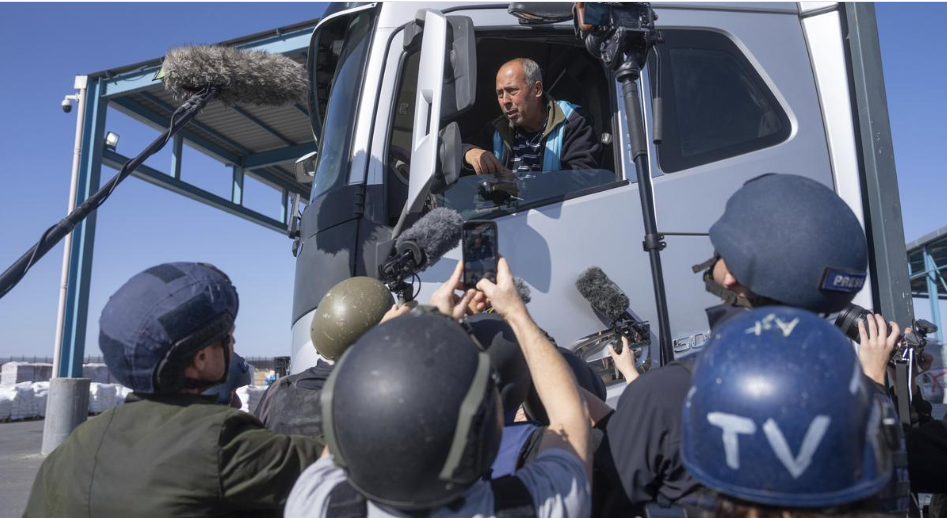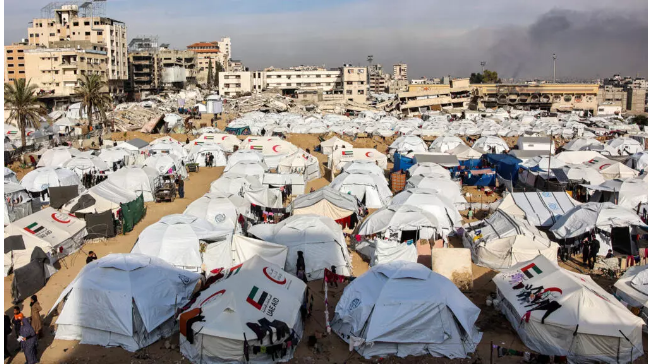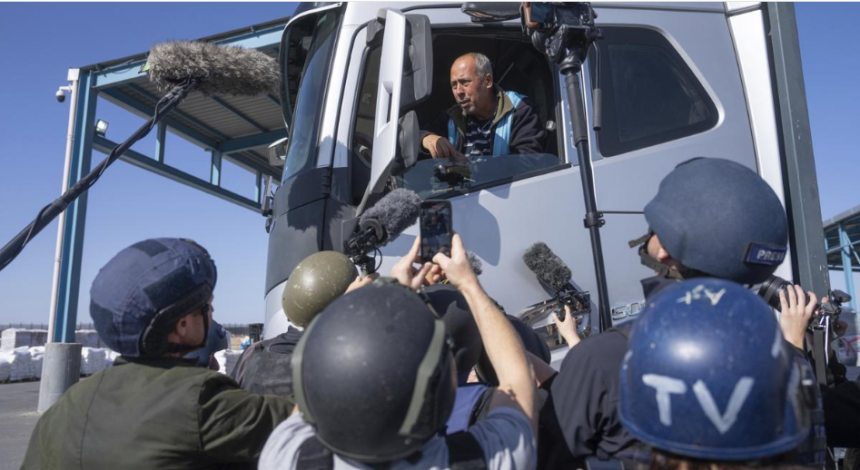Introduction
Food, humanitarian crisis in Gaza has deepened to catastrophic levels, with organizations like Oxfam reporting that only 12 trucks carrying food and water have reached the besieged North Gaza Governorate since October. Despite being part of a meager 34 trucks permitted entry over two and a half months, logistical obstructions and delays attributed to Israeli military controls have compounded the suffering of Palestinian civilians. This article explores the scale of the crisis, the factors contributing to these severe restrictions, Food, and the urgent need for international intervention.
1. Context and Background of the Gaza Crisis
Gaza, home to over 2 million people, has long endured a crippling blockade imposed by Israel and Egypt since 2007.
- Blockade Impacts:
- Restrictions on the movement of goods and people have created chronic shortages of food, medicine, and essential supplies.
- The region suffers from one of the highest poverty and unemployment rates in the world.
- Recent Escalations:
- Tensions escalated following military operations, further tightening restrictions and exacerbating humanitarian needs.
- Civilians in northern Gaza bear the brunt of the conflict, Food, with their access to basic necessities nearly eliminated.
 For the more information click on this link
For the more information click on this link
2. Oxfam’s Alarming Report
Oxfam, a global confederation working to alleviate poverty, painted a grim picture of the dire situation.
- Limited Aid Delivery:
- Only 34 trucks were authorized for entry over two and a half months, far below the region’s minimum requirements.
- Of these, just 12 trucks successfully delivered aid to northern Gaza due to Israeli-imposed delays.
- Insufficient Provisions:
- These deliveries represent a fraction of the essential supplies needed for the population.
- Many families in northern Gaza have been left starving, with no access to clean water or food.
- Deliberate Delays:
- Oxfam attributed the low success rate of aid deliveries to “systematic obstructions” by the Israeli military.
3. Humanitarian Implications
The scarcity of food and water has created life-threatening conditions for Gaza’s civilians.
- Health Concerns:
- Malnutrition rates, particularly among children, have soared.
- Lack of clean water has triggered the spread of waterborne diseases.
- Social Impact:
- Families have been forced to survive on reduced rations, Food, with some resorting to scavenging for food.
- Community ties and local support systems are strained under the immense pressure.
4. Voices from the Ground
Eyewitness accounts reveal the harrowing conditions faced by Gaza residents.
- Civilians’ Struggles:
- “We wait for hours at aid distribution centers, but most times, there is nothing left for us,” shared a mother of three in northern Gaza.
- Another resident described the water shortage: “Clean drinking water feels like a distant memory.”
- Aid Workers’ Challenges:
- Humanitarian workers report threats, logistical barriers, and unsafe conditions impeding their efforts.
5. Israeli Military’s Justification
The Israeli government has defended its strict measures, citing security concerns.
- Alleged Misuse of Aid:
- Officials claim that aid supplies could be diverted for use by armed groups.
- There are allegations of tunnels being used to smuggle goods intended for civilians.
- Security Measures:
- The military has stated that rigorous checks are necessary to prevent weapons from entering Gaza.
6. International Response
The global community has expressed outrage over the worsening humanitarian situation.
- UN Reaction:
- The United Nations has condemned the blockade and urged immediate measures to facilitate aid delivery.
- UN Special Coordinator for the Middle East Peace Process stated, “Delaying aid to starving civilians is unacceptable.”
- NGOs and Activists:
- Various organizations, including Amnesty International and Human Rights Watch, have called for an end to the obstruction of humanitarian relief.
- Protests worldwide have demanded accountability for actions exacerbating the crisis.
7. The Role of Egypt and Regional Stakeholders
While the focus is often on Israel, Egypt also plays a critical role in the crisis.
- Border Control:
- Egypt controls the Rafah crossing, the only non-Israeli entry point into Gaza, which remains tightly restricted.
- Diplomatic Pressure:
- Regional stakeholders have yet to exert meaningful pressure to alleviate the blockade’s impact on civilians.
8. Broader Implications of Aid Restrictions
The lack of humanitarian assistance in Gaza has repercussions beyond the immediate crisis.
- Destabilization:
- A starving and desperate population heightens the risk of further conflict and radicalization.
- Global Perception:
- Continued suffering in Gaza diminishes Israel’s standing in the international community.
- The inaction of powerful nations draws criticism for enabling a worsening humanitarian disaster.
9. Path Forward: Humanitarian and Political Solutions
Resolving the Gaza crisis requires both immediate humanitarian action and long-term political solutions.
- Short-Term Measures:
- Prioritizing unhindered access for aid organizations to deliver food, water, Food, and medical supplies.
- Establishing humanitarian corridors and monitoring mechanisms to ensure aid reaches civilians.
- Long-Term Strategies:
- International mediation to lift the blockade and address security concerns through dialogue.
- Promoting sustainable development in Gaza to reduce dependence on external aid.
 For the more information click on this link
For the more information click on this link
10. The Role of Public Awareness and Advocacy
Global citizens can play an active role in pushing for change in Gaza.
- Raising Awareness:
- Sharing stories and facts about Gaza’s plight amplifies pressure on governments and policymakers.
- Support for NGOs:
- Donating to and volunteering with reputable organizations ensures resources reach affected communities.
- Advocacy Campaigns:
- Petitioning for international action to hold accountable those obstructing humanitarian aid.
Conclusion
The report from Oxfam sheds light on a deeply troubling situation in northern Gaza, where deliberate delays and restrictions have left millions without basic necessities. Addressing this crisis demands urgent action to deliver aid and alleviate suffering. It also calls for long-term commitment from the international community to resolve the underlying political issues driving the blockade. As the world watches, the people of Gaza await not just relief but also the hope of a dignified future. ALSO READ:- Brazil Plane Crash: Tragic Incident Claims 10 Lives, Injures Many in Gramado Neighborhood 2024





